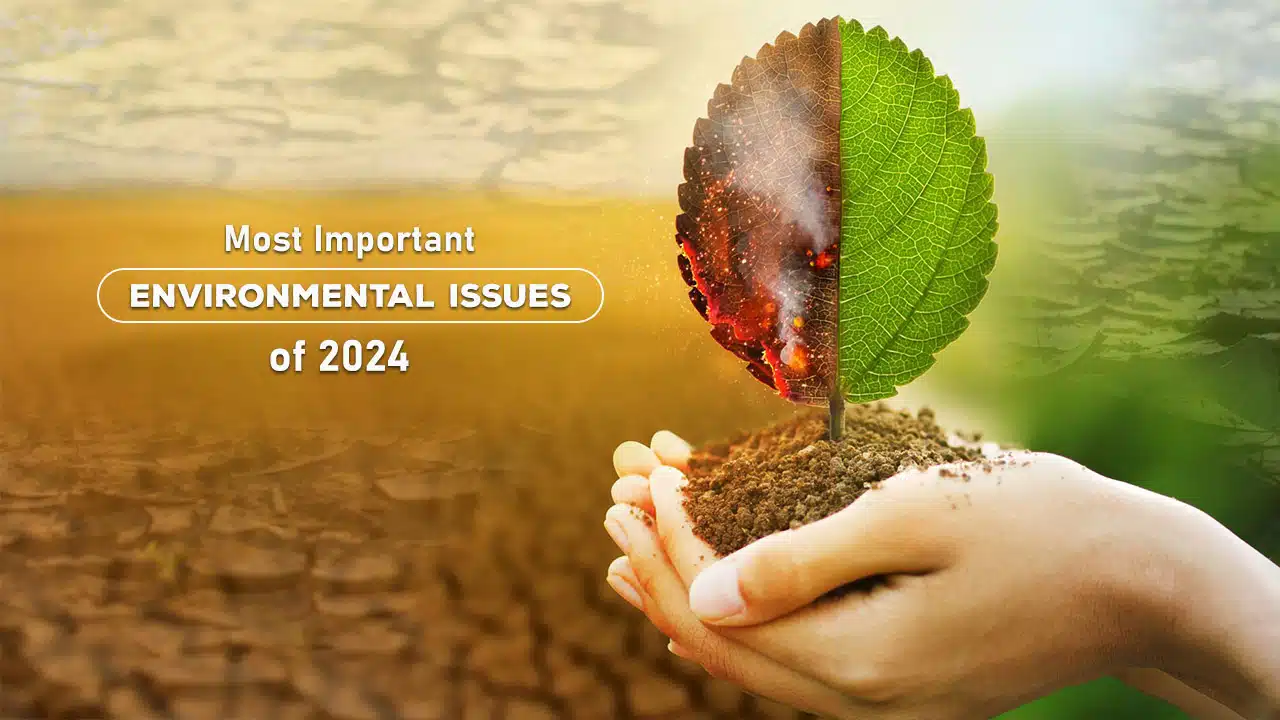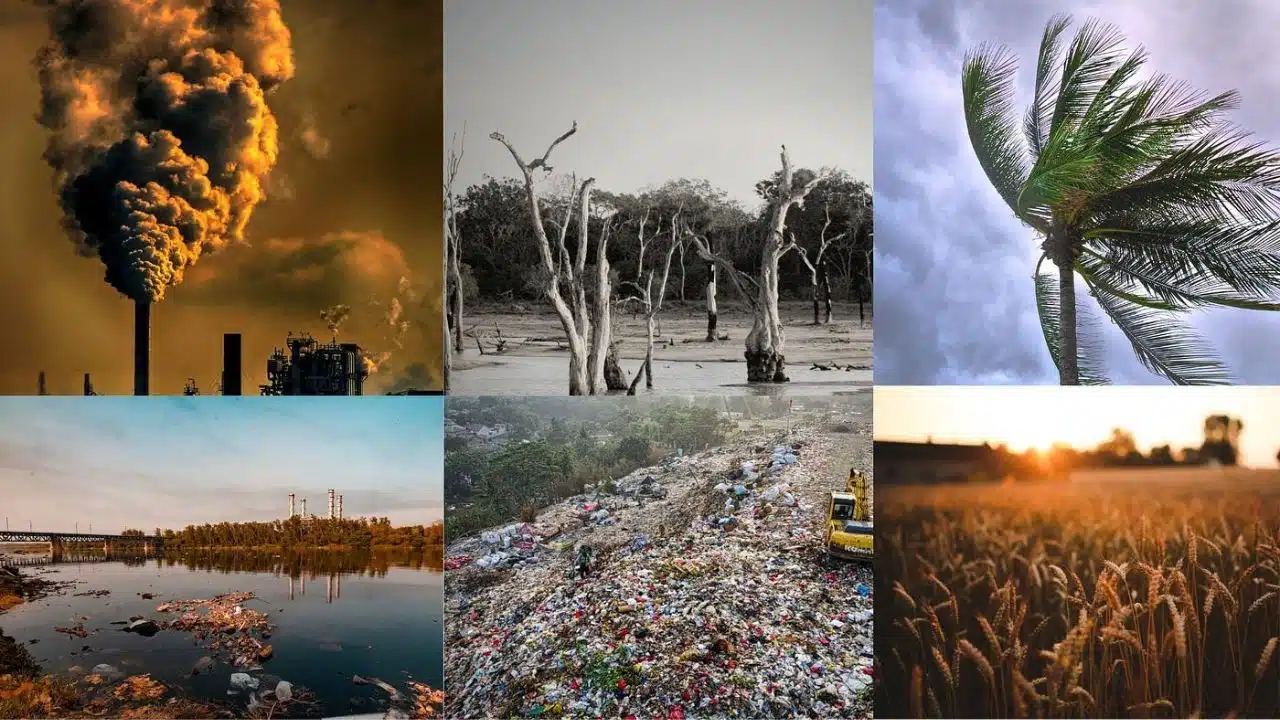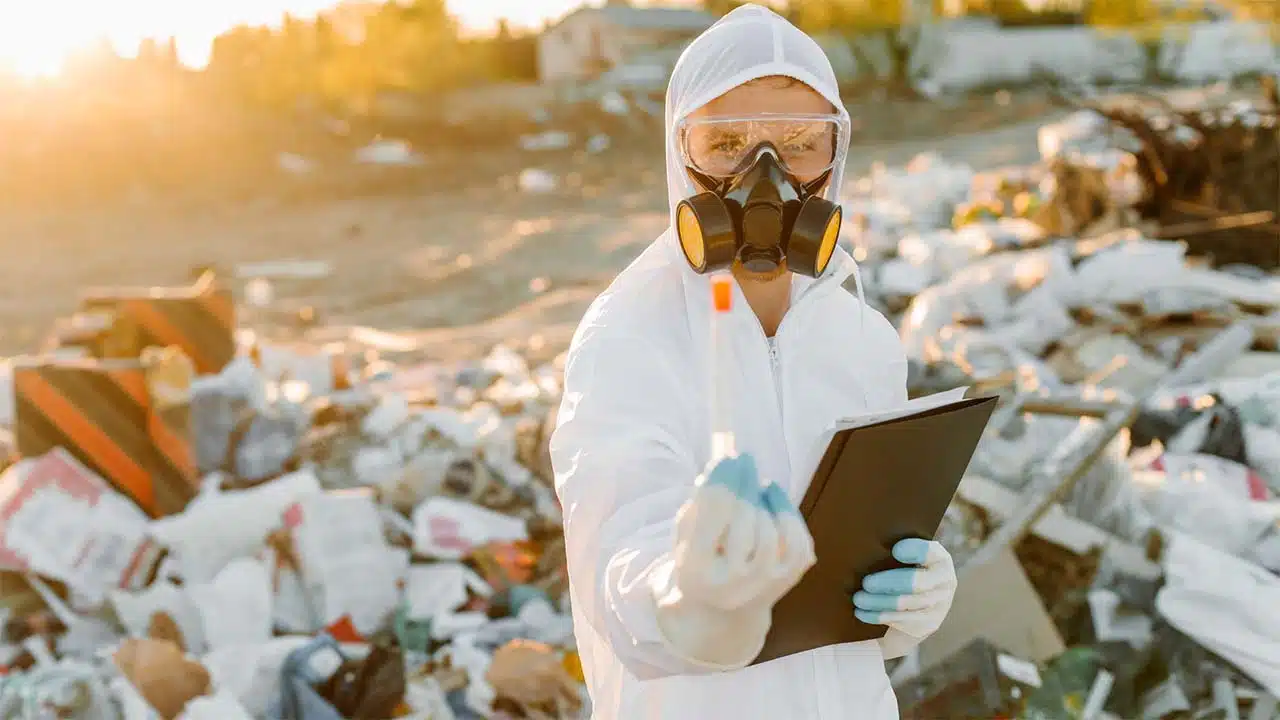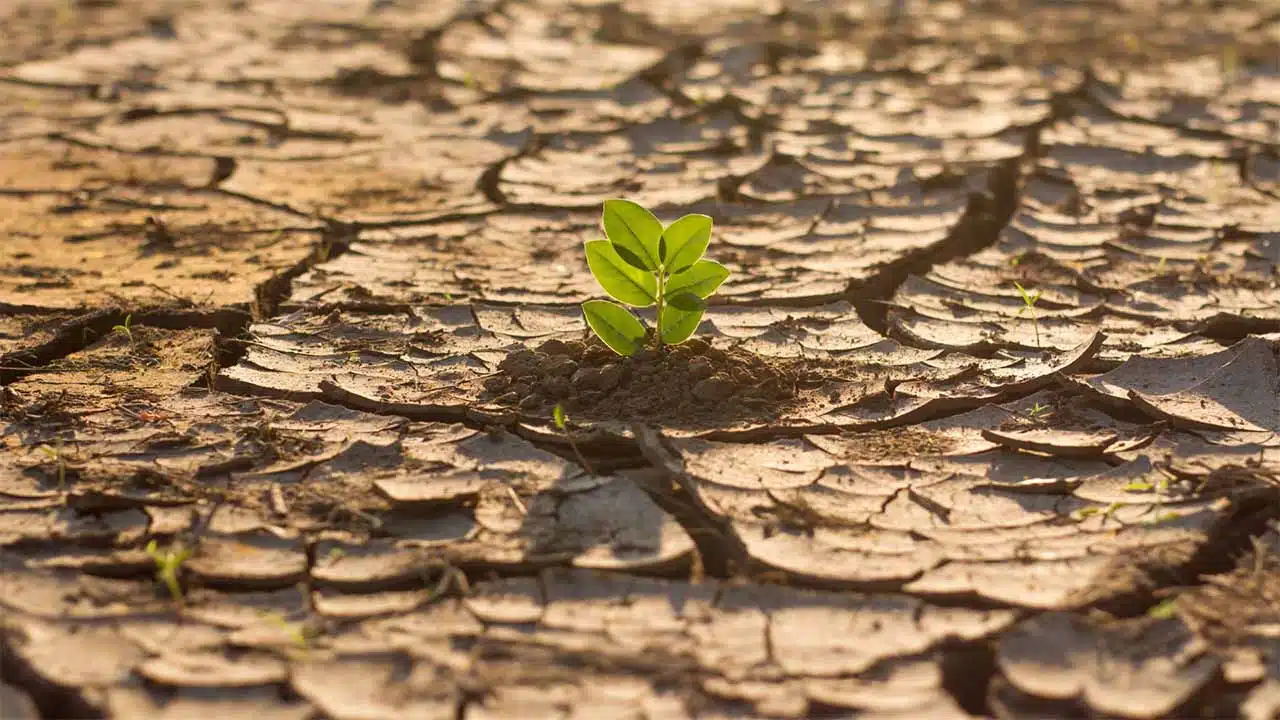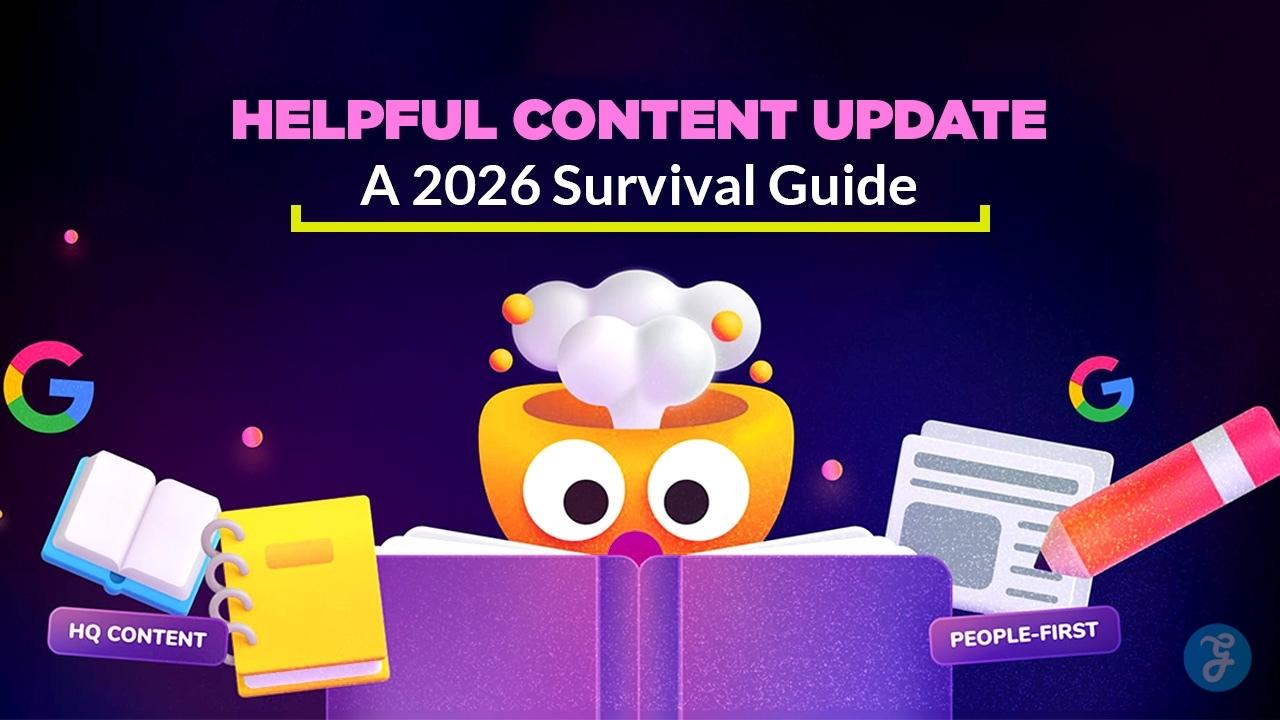Environmental issues in 2024 will affect everyone. You might wonder the biggest problemsblems are and how they impact your daily life. From climate change to pollution, these challenges shape the world around us.
The top environmental concerns of 2024 touch on air, water, land, and wildlife. You’ll find that many of these issues connect. Understanding them can help you make better choices for the planet.
Let’s explore the most pressing environmental problems facing us this year.
1. Climate Change
Climate change remains the most pressing environmental issue of 2024. Global temperatures continue to rise at an alarming rate. Last year was the hottest, with average temperatures 1.46°C above pre-industrial levels.
You’re now living in a world that has surpassed the critical 1.5°C warming threshold. This milestone, once considered a future scenario, is now your reality. The consequences are becoming increasingly apparent in your daily life.
Extreme weather events are more frequent and severe. You may have noticed more intense heatwaves, stronger hurricanes, or more prolonged droughts in your area. These changes affect your health, safety, and livelihood.
The impacts extend beyond weather patterns. You’re witnessing rapid ice melt in polar regions and rising sea levels threatening coastal communities. Many plant and animal species are struggling to adapt, leading to biodiversity loss.
Your actions matter more than ever. Reducing your carbon footprint through energy-efficient choices and supporting renewable energy can make a difference. Every step you take to lower emissions helps combat this global challenge.
2. Deforestation
Deforestation remains a significant problem in 2024. Forests are disappearing at an alarming rate. This hurts animals, plants, and people who depend on them.
Why should you care? Forests help fight climate change. They absorb carbon dioxide from the air. When trees are cut down, this greenhouse gas is released back into the atmosphere.
You might wonder where deforestation happens most. Tropical rainforests in South America and Southeast Asia face the most significant threats. Large areas are cleared for farming, mining, and logging.
What can be done? Some countries are taking action. Indonesia has made progress in recent years. However, new data shows forest loss is starting to increase again.
Companies play a significant role, too. Many have promised to stop deforestation in their supply chains. But progress has been slow. More pressure is needed to make real change.
You can help by choosing products that don’t contribute to deforestation. Look for certifications like FSC on wood and paper products. Support organizations working to protect forests.
Planting new trees is important, but saving existing forests should be the top priority. Old-growth forests store more carbon and support more wildlife than newly planted areas.
3. Plastic Pollution
Plastic pollution is a significant problem in 2024. Over 460 million tons of plastic are made each year. Sadly, about 20 million tons end up in the environment.
Plastic waste harms wildlife and ecosystems. Animals can get tangled in plastic or eat it by mistake. This often leads to injury or death.
The oceans are hit hard by plastic trash. At least 14 million tons of plastic enter the seas every year. It makes up 80% of all marine debris.
Plastic doesn’t break down quickly. It can last for hundreds of years. As it slowly breaks apart, it forms tiny pieces called microplastics. These are found everywhere, even in drinking water.
You can help fight plastic pollution. Use reusable bags and water bottles. Avoid single-use plastics when you can. Recycle properly and pick up litter in your area.
Many countries are taking action. Some have banned certain plastic items. Others are working on better recycling programs. But there’s still a lot of work to do to solve this growing problem.
4. Air Quality
Air quality remains a significant concern in 2024. Many people breathe unhealthy air every day. This affects their health and well-being.
The latest “State of the Air” report shows some alarming trends. About 130 million Americans are regularly exposed to poor air quality. That’s over one-third of the U.S. population.
What causes this problem? Air pollution comes from various sources. These include vehicle emissions, industrial activities, and natural events like wildfires.
Particle pollution is a crucial issue. Tiny particles in the air can harm your lungs and heart. The EPA recently updated its standards for annual particle pollution.
Ozone is another significant pollutant. It forms when emissions react with sunlight. High ozone levels can trigger asthma attacks and other breathing problems.
Climate change is making air quality worse in some areas. Rising temperatures can increase the formation of ground-level ozone.
What can you do to protect yourself? Check local air quality reports daily. Limit outdoor activities when pollution levels are high. Use air purifiers indoors to filter out harmful particles.
Governments are taking action, too. Many cities are implementing stricter emission controls. They’re also promoting cleaner energy sources to reduce air pollution.
5. Biodiversity Loss
Biodiversity loss is a big problem in 2024. Plants and animals are disappearing fast. This hurts ecosystems and can affect your life, too.
Climate change is making things worse. As temperatures rise, many species can’t adapt quickly enough. Forests are shrinking, and coral reefs are dying. These changes leave animals without homes.
Human activities also cause trouble. Cutting down trees, polluting water, and building cities destroy habitats. Overfishing empties the oceans. Pesticides kill essential insects like bees.
Why does this matter? Biodiversity keeps nature in balance. It gives us food, medicine, and clean air. When species vanish, these benefits go away.
What can you do? Use less plastic. Buy sustainable products. Support conservation efforts. Small actions add up. By protecting nature, you protect yourself, too.
Scientists are working hard to save endangered species. They’re creating protected areas and studying how to restore habitats. But they need your help to succeed.
Remember, every plant and animal plays a role in nature. Losing even one can upset the whole system. Your choices can make a difference in preserving biodiversity for the future.
6. Water Scarcity
Water scarcity is a growing problem in 2024. You might be surprised to learn that half the world’s population faces severe water shortages for part of the year.
This issue affects both rich and poor countries. People struggle to get enough clean water for drinking, cooking, and washing in many places.
Climate change makes water scarcity worse. It causes more droughts in some areas and floods in others—these extreme weather events damage water supplies and infrastructure.
Population growth puts more pressure on water resources. As cities expand, they need more water for homes and businesses. Farms also use vast amounts of water for irrigation.
Pollution is another big problem. Industrial waste and agricultural runoff contaminate rivers and lakes. This makes water unsafe to drink and harms ecosystems.
Some countries are taking action. They’re building desalination plants to make seawater drinkable. Others are improving irrigation systems to use less water on farms.
You can help by using water wisely at home. Take shorter showers, fix leaky taps, and water your garden in the early morning or evening. Small actions add up when everyone does their part.
7. Ocean Acidification
The ocean is getting more acidic. This is a big problem for sea life. When you breathe out, you release carbon dioxide. The ocean takes in a lot of this gas from the air.
As more carbon dioxide enters the water, the ocean’s chemistry changes. The water becomes more acidic. This makes it harder for some sea creatures to build their shells and skeletons.
Oysters, clams, and corals are in danger. They need certain conditions to grow their protective coverings. Acidic water can weaken or destroy these structures.
Fish are also affected. Some struggle to find food or avoid predators in acidic waters. This can upset the whole marine food chain.
Scientists are tracking these changes. They use special tools to measure ocean acidity. New maps show how different areas are being impacted.
You can help slow this process. Reducing your carbon footprint is critical. Using less energy and supporting clean power sources makes a difference.
Protecting coastal habitats is also essential. Mangroves and seagrasses can help buffer against acidity. Supporting efforts to preserve these areas is crucial.
8. Soil Degradation
Soil degradation is a big problem for the planet. It happens when soil loses its quality and ability to support plant life. This issue affects many areas around the world.
Why does soil degradation matter? Healthy soil is crucial for growing food and maintaining ecosystems. When soil degrades, it can’t hold water or nutrients as well. This makes it harder for plants to grow.
Many things can cause soil degradation. Farming without proper care can wear out the soil. Deforestation removes trees that help keep soil in place. Chemical pollution can also harm soil health.
Climate change is making soil degradation worse. Extreme weather events like droughts and floods can damage soil structure. As temperatures rise, some areas become too dry to support plant life.
You can help fight soil degradation. Using sustainable farming methods is one way. Planting trees and reducing chemical use are also helpful. Small actions in your garden can make a difference, too.
Protecting soil is critical for food security and the environment. By taking care of the soil, you’re helping to create a healthier planet for everyone.
9. Overfishing
Overfishing is a big problem for our oceans in 2024. Fishing boats are taking too many fish from the sea. This hurts the balance of sea life.
Many fish species are now at risk. Some experts say significant fish stocks could collapse by 2050 if nothing changes. This would be bad for sea animals and people who rely on fishing.
New technology makes it easier to catch lots of fish quickly. But this can harm whole species. It also affects other sea creatures caught by mistake.
How does this impact you? The fish you eat could become scarce or very expensive. It could also hurt jobs in coastal areas that depend on fishing.
Protecting the oceans is tricky. Some plans to save sea life still allow too much fishing. Finding the right balance is critical.
You can help by choosing seafood wisely. Look for labels that show the fish was caught sustainably. This means fishing in ways that don’t harm ocean ecosystems.
10. Urban Sprawl
Urban sprawl is growing fast. Cities are spreading out more than ever before. This rapid growth affects the environment in significant ways.
From 1992 to 2019, urban land worldwide increased by 226%. That’s a lot of new city space in just 27 years. As cities grow, they take over natural areas and farmland.
This spread of cities causes problems. It leads to more greenhouse gases in the air. It also threatens essential ecosystems. Plants and animals lose their homes when cities expand.
Urban sprawl makes people more dependent on cars. This means more traffic and pollution. It also uses up more energy and resources.
Climate change makes urban sprawl even riskier in some places. In tropical cities, spreading into hilly areas can increase landslide dangers.
You can help fight urban sprawl—support plans for compact city growth. Choose to live in areas close to work and stores. This reduces the need for long drives and new roads.
Cities can plan better, too. They can focus on building up instead of out. They can also protect green spaces and create parks within city limits.
Impact of Climate Change
Climate change is transforming our planet in profound ways. Rising temperatures and shifting weather patterns are causing far-reaching effects on ecosystems, economies, and human societies worldwide.
Global Warming
Earth’s average temperature has increased by about 1.1°C since pre-industrial times. This warming is melting polar ice caps and glaciers at alarming rates. Sea levels are rising, threatening coastal communities and small island nations.
Warmer oceans are damaging coral reefs and disrupting marine ecosystems. Plants and animals struggle to adapt or migrate on land as their habitats change. Some species face extinction.
Carbon dioxide levels in the atmosphere have reached their highest point in over 800,000 years. This traps more heat and intensifies the greenhouse effect. If emissions continue unchecked, global temperatures could rise by over four °C by 2100.
Extreme Weather Events
Climate change is making extreme weather more frequent and severe. Heat waves are becoming longer, hotter, and deadlier. Droughts are intensifying in many regions, harming agriculture and increasing wildfire risks.
At the same time, heavy rainstorms and flooding are getting worse in other areas. Hurricanes and typhoons are growing stronger on average. These disasters cause billions in damage and displace millions of people each year.
Extreme weather puts significant stress on infrastructure, food and water security, and public health systems. Poor and vulnerable populations often suffer the worst impacts. These events will likely become even more destructive as the climate continues to warm.
Pollution and Its Effects
Pollution harms our air, water, and soil. It causes health problems and damages ecosystems. Let’s look at the main types of pollution and their impacts.
Air Pollution
Air pollution is a big problem in many cities. Cars, factories, and power plants release harmful gases and tiny particles. These pollutants can make it hard to breathe. They can cause asthma, lung cancer, and heart disease.
In the U.S., about 67 million tons of pollution entered the air in 2021. Common air pollutants include:
- Sulfur dioxide
- Nitrogen oxides
- Ozone
- Carbon monoxide
- Particulate matter (PM2.5 and PM10)
Air pollution also contributes to climate change. It traps heat in the atmosphere, making the Earth warmer.
Water Pollution
Water pollution affects rivers, lakes, and oceans. It comes from many sources:
- Factory waste
- Farm runoff
- Sewage
- Oil spills
Polluted water can make people sick if they drink or swim in it. It also harms fish and other water creatures.
Plastic pollution is a growing concern. Tiny pieces of plastic, called microplastics, are found in water worldwide. These can harm animals that mistake them for food.
Soil Pollution
Soil pollution happens when chemicals or waste contaminate the ground. This can come from:
- Pesticides and fertilizers
- Industrial waste
- Landfills
- Mining activities
Polluted soil can harm plants, animals, and humans. It can make it hard to grow crops. When we eat food grown in contaminated soil, we might take in harmful chemicals.
Soil pollution can also spread to water sources. When it rains, pollutants in the soil can wash into rivers and lakes.
Biodiversity Loss
Plants and animals are disappearing at an alarming rate. This loss threatens ecosystems and human well-being worldwide. Habitat destruction and species extinction are significant drivers of this crisis.
Habitat Destruction
You see habitat loss everywhere. Forests fall to make way for farms and cities. Wetlands get drained for development. Coral reefs die from warming oceans.
Animals lose their homes. Plants can’t survive. Entire ecosystems collapse. In the Amazon, 17% of the rainforest is gone. This hurts wildlife and indigenous people.
Urban sprawl gobbles up nature. Roads cut through wilderness. Dams flood valleys. Oil and gas drilling scars the land.
What can you do? Support protected areas. Choose sustainable products. Reduce your carbon footprint. Small actions add up.
Species Extinction
Animals and plants are vanishing fast. Scientists say we’re in the sixth mass extinction. Up to 1 million species face extinction soon.
Climate change pushes species to the brink. Polar bears struggle as sea ice melts. Amphibians die from deadly fungus. Bees decline from pesticides.
Iconic animals like rhinos and tigers are near extinction. Lesser-known species vanish before we can study them.
You can help. Buy less stuff. Eat sustainable food. Support conservation groups. Learn about local species—plant native gardens. Every effort counts.
Takeaway
The environmental issues of 2024 present daunting challenges that require urgent attention. From climate change and deforestation to plastic pollution and biodiversity loss, these problems are interconnected and impact every aspect of our lives.
Addressing these issues demands collective action at both individual and global levels. By making conscious choices, advocating for sustainable practices, and supporting policies that protect our planet, we can contribute to a healthier, more sustainable future.
The time to act is now—our planet’s well-being and our own depend on it.


